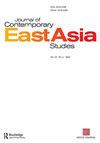Negotiating the coexistence of mining and pastoralism in Mongolia
IF 1.4
Q1 AREA STUDIES
引用次数: 1
Abstract
ABSTRACT Introduction The relationship between mining developments and local communities has been highly contested. The role of the local population in Mongolia, which is largely comprised of herder households and communities, has not been adequately recognized in government mining policy and regulations. Since 2006, mining project proponents are required to establish local level agreements (LLAs) with local host governments in Mongolia. Objective This paper examines how agreement mechanisms have been implemented and whether they have helped local communities protect their interests while coexisting with mining. Methods The paper draws on a multi-year study on LLAs in Mongolia carried out by the author between 2013 - 2018. Results As the Mongolian case demonstrates, legal prescription by itself will not deliver the desired outcomes of greater benefits for local communities or improved relations between these communities and developers. The negotiation of coexistence of mining and pastoralism requires iterative, multilayered processes involving the communities affected by the project. Unless the rights and claims of project-affected pastoral communities are recognized in the LLA regulations, their meaningful participation in agreement-making will remain limited.蒙古国矿业与畜牧业共存的谈判
摘要简介采矿业发展与当地社区之间的关系一直备受争议。蒙古当地人口主要由牧民家庭和社区组成,其作用在政府采矿政策和法规中没有得到充分承认。自2006年以来,采矿项目的支持者必须与蒙古的地方东道国政府签订地方层面的协议。目的探讨协议机制是如何实施的,以及它们是否有助于当地社区在与采矿共存的同时保护自己的利益。方法利用作者在2013-2018年间对蒙古LLAs进行的多年研究。结果正如蒙古的案例所表明的那样,法律规定本身并不能为当地社区带来更大的利益或改善这些社区与开发商之间的关系。矿业和畜牧业共存的谈判需要涉及受项目影响的社区的迭代、多层次的过程。除非受项目影响的牧民社区的权利和主张在LLA条例中得到承认,否则他们对协议制定的有意义的参与将仍然有限。
本文章由计算机程序翻译,如有差异,请以英文原文为准。
求助全文
约1分钟内获得全文
求助全文
来源期刊

Journal of Contemporary East Asia Studies
Social Sciences-Cultural Studies
CiteScore
2.50
自引率
0.00%
发文量
10
审稿时长
6 weeks
 求助内容:
求助内容: 应助结果提醒方式:
应助结果提醒方式:


